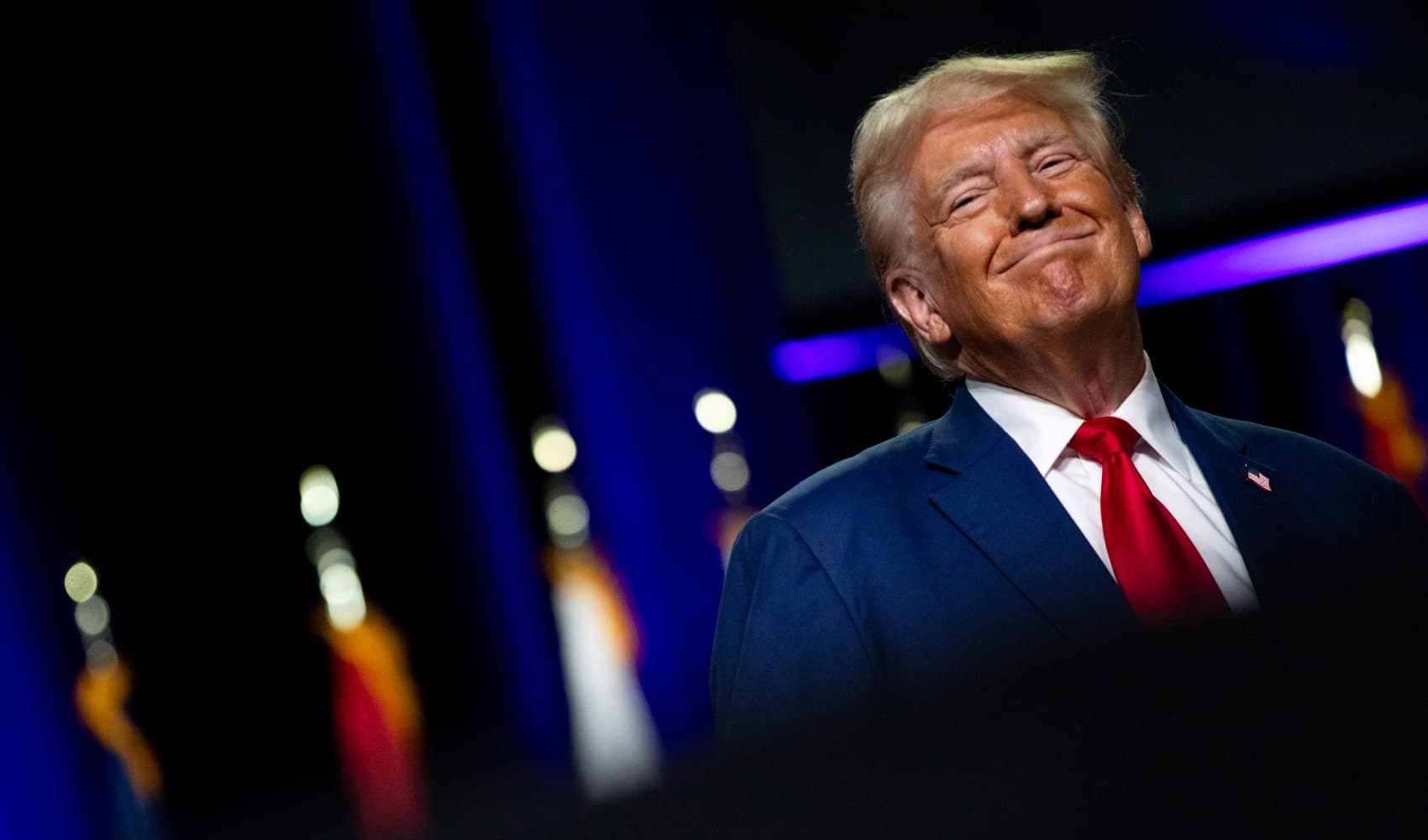
- Members of the House Select Committee on the Chinese Communist Party sent letters to the CEOs of Apple and Alphabet about their responsibilities pertaining to TikTok.
- The lawmakers were referring to last week's decision by the U.S. Court of Appeals in Washington, D.C., to uphold a law requiring China's ByteDance to divest TikTok by Jan. 19.
- If ByteDance fails to sell TikTok by that date, Apple and Google will be required by law to ensure that their app stores no longer support the app in the U.S., the lawmakers said.
House Committee members are urging the top executives of Apple and Google to be prepared to comply with a law that could result in TikTok facing an effective ban in the U.S. next month
Letters were sent on Friday to Apple CEO Tim Cook and Alphabet CEO Sundar Pichai from Reps. John Moolenaar, R-Mich., and Raja Krishnamoorthi, D-Ill., of the House Select Committee on the Chinese Communist Party, reminding them of their responsibilities as app store operators.
The lawmakers were referring to last week's decision by the U.S. Court of Appeals in Washington, D.C., to uphold a law that requires China's ByteDance to divest TikTok by Jan. 19. If ByteDance fails to sell TikTok by that date, Apple and Google will be required by law to ensure that their platforms no longer support the TikTok app in the U.S., the lawmakers wrote.
Get top local stories in Southern California delivered to you every morning. >Sign up for NBC LA's News Headlines newsletter.
"As you know, without a qualified divestiture, the Act makes it unlawful to '[p]rovid[e] services to distribute, maintain, or update such foreign adversary controlled application (including any source code of such application) by means of a marketplace (including an online mobile application store) through which users within the land or maritime borders of the United States may access, maintain, or update such application,'" the lawmakers wrote in the letters.
They also sent a letter to TikTok CEO Shou Zi Chew, reviewing the court decision. They said that since President Joe Biden passed the original TikTok law in April, "Congress has provided ample time for TikTok to take the necessary steps to come into compliance."
"Indeed, TikTok has had 233 days and counting to pursue a solution that protects U.S. national security," the lawmakers wrote.
Money Report
Although TikTok called the law unconstitutional and said it violates the First Amendment rights of its 170 million users, a three-judge panel on the appeals court rejected that argument and said in an opinion that the law "is narrowly tailored to protect national security."
TikTok has since filed an emergency motion for an injunction to stop the ban from taking effect until the U.S. Supreme court can hear its appeal. The company warned that one month of a U.S. ban would result in U.S. small businesses and social media creators losing $1.3 billion in sales and earnings.
President-elect Donald Trump has not publicly stated whether he plans to enforce the effective TikTok ban when he officially takes office on Jan. 20.
Trump tried to push through a ban in his first administration, but his rhetoric on TikTok began to turn after the president-elect met in February with billionaire Jeff Yass, a Republican megadonor and a major investor in the Chinese-owned social media app.
Yass' trading firm Susquehanna International Group owns a 15% stake in ByteDance, while Yass maintains a 7% stake in the company, equating to about $21 billion, NBC and CNBC reported in March. That month it was also reported that Yass was a part owner of the business that merged with the parent company of Trump's Truth Social.
Google declined CNBC's request for comment.
Apple and TikTok did not immediately respond to CNBC's requests for comment.
WATCH: TikTok ban law upheld






